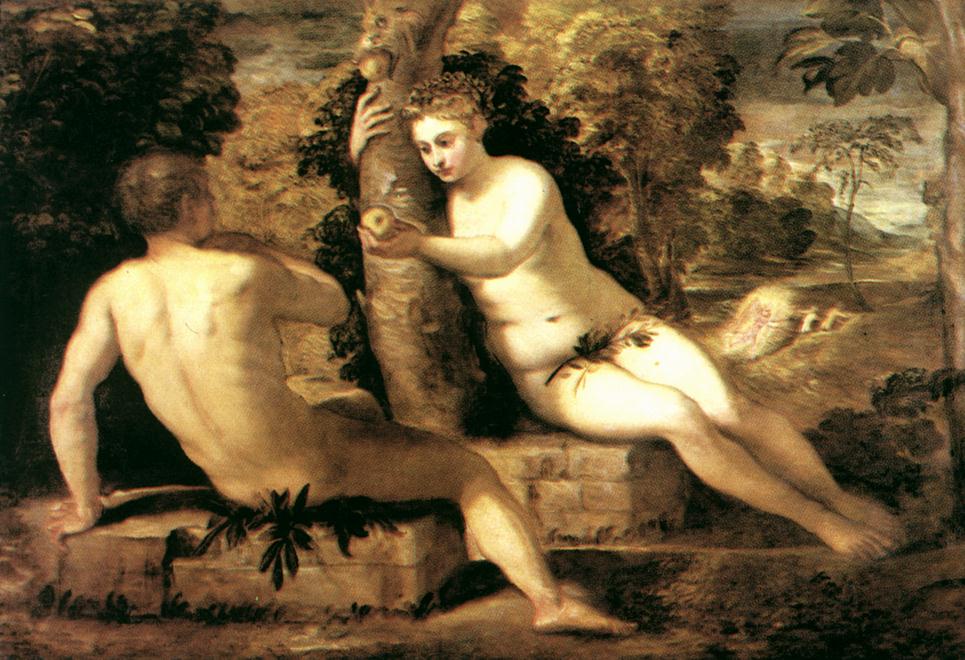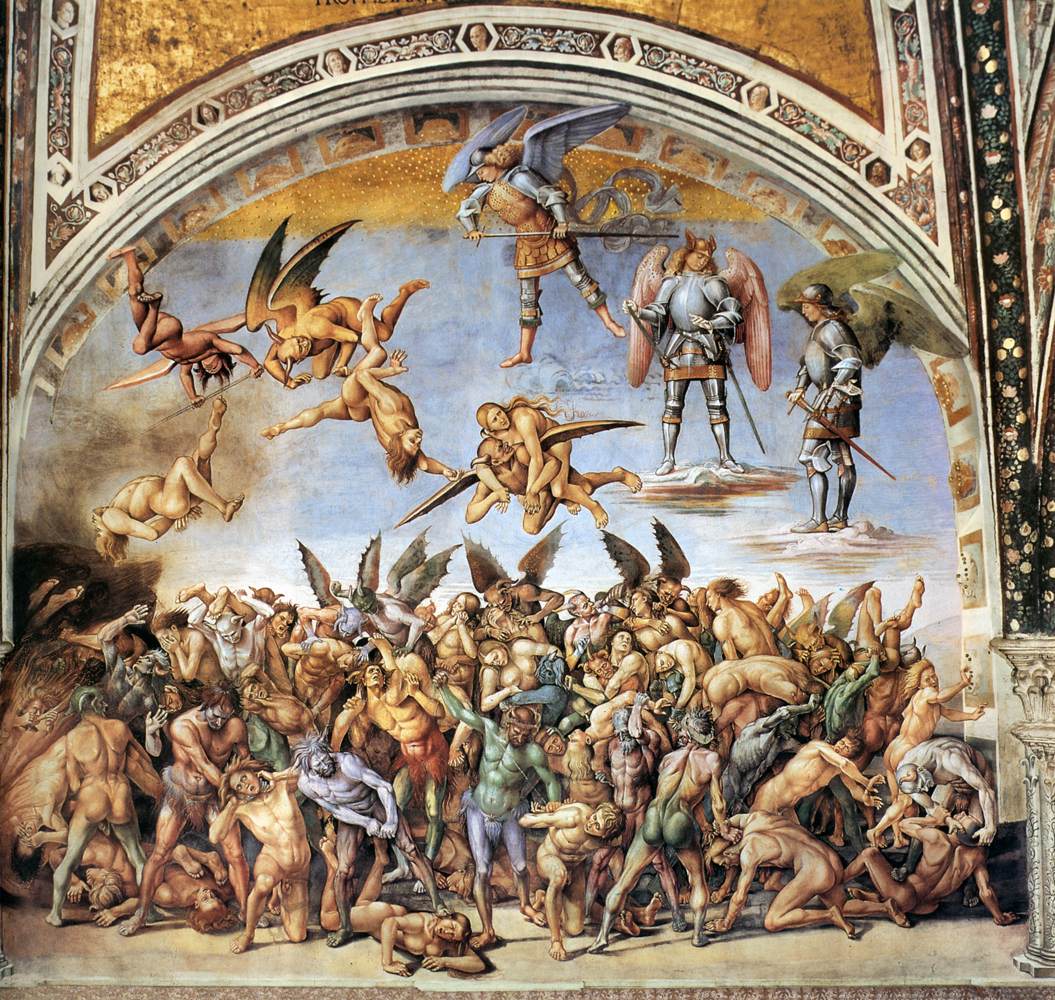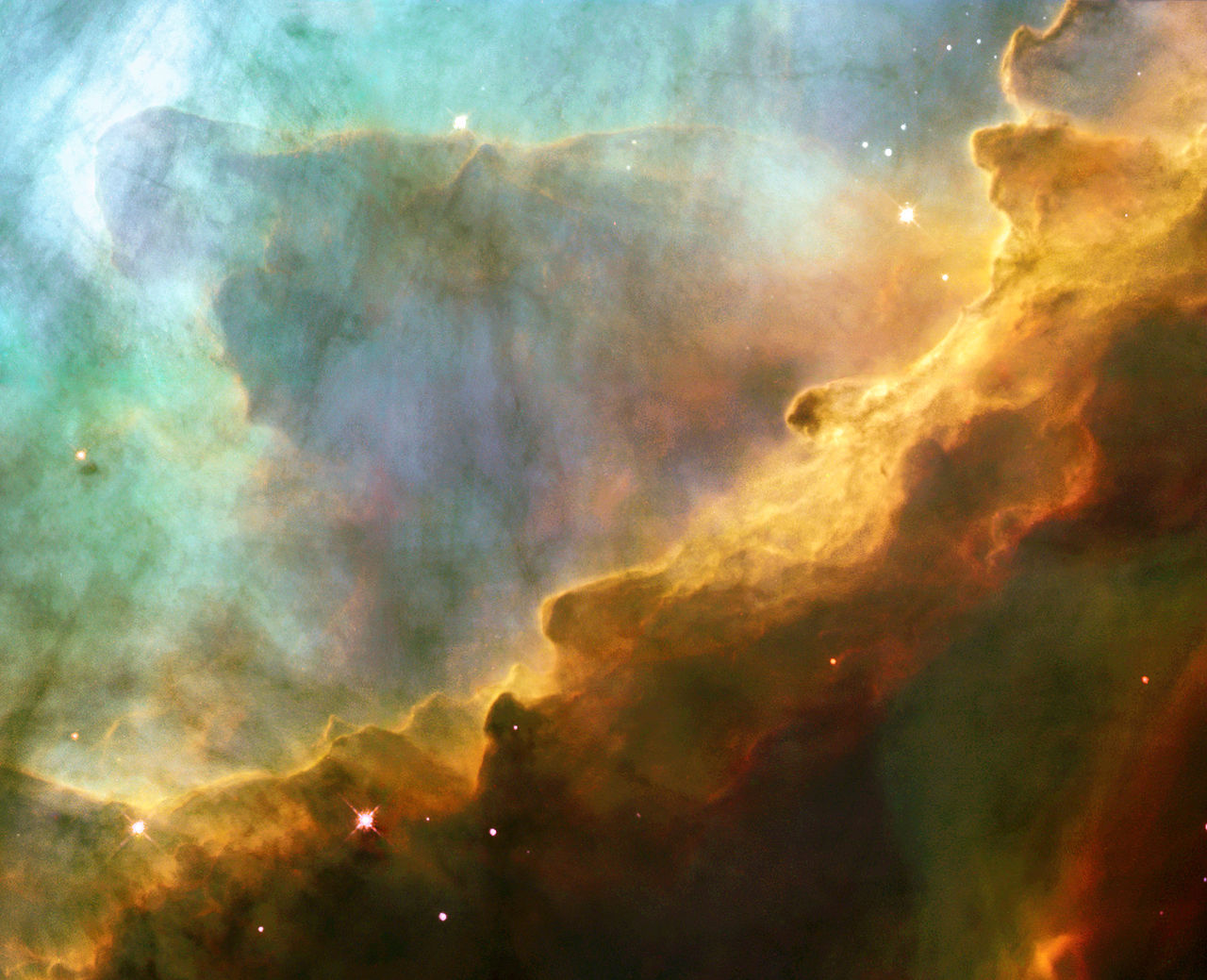The Fall ~
 |
Adam and Eveby Jacopo Tintoretto, 1550, Gallerie dell' Accademia, Venice. |
|---|
Love makes sense. Original sin does not. Love God, love our neighbors is healthy. The concept of Original Sin is unhealthy and has led to more suffering and degradation than any imposed condition, other than perhaps the Divine Right of Kings.
In our own recent past, it was a sin in the Catholic Church to eat meat on Fridays. As with most sins, it was made for practical purposes of controlling people and situations.
That sin has since been overturned. And with that, we have the authority to question any such rule of the Church.
This is not to say that we should disregard Eden and the Fall. We can learn from the idea of original sin, perhaps there is "the sins of our biological father". All of us were born into a situation of wealth or poverty or in between. Our environment and our genetic composition helped determine who we are. But we are not just to be made to suffer for the sins of Adam or our biologic father. We have our own transgressions and imperfections to account for. We can experience our own Fall and eventual redemption. And this is an often told story of human endeavors.
Expulsion From the Garden of Eden, Stained Glass. There is truth to the saying “we must suffer the sins of our fathers” in that we must suffer through our genetic fallibility and the cultural, nurturing and economic conditions handed down to us by our fathers. |
 |
|---|
The doctrine of Original Sin was made up or derived from some teachings of the early Church Father St. Augustine. Augustine grew up as a pagan and enjoyed the sexual aspects of that life and then converted to Christianity. But, he could not quell his lust and human desires and ended up blaming Eve, for his "sins". In a way, he was like Martin Luther who could not find forgiveness in some the rituals of his Church - confession, indulgences, penitence, etc. Gnostic influences such as the imperfect physical nature of man influenced the early church especially in areas of sex and sexuality and this developed into concepts of sin and evil, especially in regard to women.
Pierre Teilhard, the Jesuit paleontologist, in his book Christianity and Evolution, published posthumous in 1969, wrote "original sin, conceived in the form still attributed to it today, is an intellectual and emotional strait-jacket...it represents a survival of obsolete static views into our now evolutionary way of thinking. Fundamentally, in fact, the idea of Fall is no more than an attempt to explain evil in a fixed universe. If, therefore, we are to have an atmosphere in which we can breathe, we must make a fresh approach to theproblem of evil, in its relationship to Christ, and rethink it in terms that fit in with our new cosmic views."
For these views, Teilhard was censured, and sent to China on a field trip, ironically, an expedition that discovered "Peking Man" - more evidence for Evolution. Mankind can arrive at the Kingdom or be “redeemed” by evolution and individual men by development of Christ Consciousness.
Two Relative Theories

Here again we have two relative theories, like the helio- and geocentric theories. The end results are the same. Man is where he is - at some place or position. How did he, or she, get there? In one view, God put man in the fallen world and then saves him though the sacrifice of Jesus and the faith of man. In the other view, man has his own falls, learns lessons, develops and survives with a higher awareness. Both start in the same place - man on earth. Both ascend to Christ in Heaven - the higher state.
Original sin has led to a crazy, absurd, distorted world view. For example, if a newborn baby is not saved, by faith or by baptism into faith, then that baby is condemned to Hell by the Church. Often the more simple theory is better, if it can explain. Evolution is observable in nature and is a natural process. Results of blood sacrifices have never been observed or explained how they could possibly work. Both paths get us to the place. Which path is more reasonable? We can look at the Scriptures history and allegory, and Church dogma as man's work in fear of the unknown hereafter, and with a quest for power on earth.
But forgiveness for our transgressions is paramount. Purification of our body mind and soul is essential. And Christ is the standard for our moral development.
For the Next Reformation Evolution of Consciousness through Christ the Logos can replace Original Sin and Salvation.
Universal Salvation
There is a teaching or doctrine of “universal salvation” or “universal reconciliation” and may be part of what we are considering here. One such verse in support of this is: John 12:32 "And I, if I be lifted up from the earth, will draw all men unto me." The Christian doctrine of Universal Salvation, or Universal Redemption, or Christian Univeralism, simply stated is that all people will eventually be brought back to God. Now, the means for this will be as varied as all the sects in all Christiandom. But what a healthy and freeing concept. And it directly negates the need of the concept of eternal damnation.
A very simple argument for Univeralism is: Why infinite punishment for finite crimes?
| The Damned in Hell, by Luca Signorelli, fresco, Brizio Chapel, Orvieto, Italy. |  |
|---|
Some Scriptual references for this are:1 Timothy 4:10-11 For therefore we both labour and suffer reproach, because we trust in the living God, who is the Saviour of all men, specially of those that believe. These things command and teach.
1 Corinthians 15:22 For as in Adam all die, even so in Christ shall all be made alive.
The operative word is “all”. Perhaps it is a generic “all” and some would argue that it refers to “all that believe” or “all that accept Jesus”. For us it is a literal “all”.
Some Christians often speak of the “unconditional Love of God”. But for this love to be truly unconditional there must also be another opportunity to be “redeemed” or to be “born again” or to be “saved”. How much better to believe that we will have a continual chance to become better and to personally evolve to higher states.
For Universal Redemption to occur, a mechanism is necessary. Karma is such mechanism. Karma is the theory or belief system of the cosmic principle of rewards and punishments for our actions in this and previous incarnations. It comes from the Sanskrit word for deeds.
The Principle of Karma is based on the natural law of Cause and Effect. The universe is conditional on action and reaction. Actions will determine the results and conditions of the next situation. This law applies everywhere except in certain religious doctrine.
Karma in a Christian system will require opportunities for redemption here on earth, and also in any possible afterlife. Purgatory was invented for such an opportunity.
Universal Redemption based on karma and unconditional love will be part of the Next Reformation.


